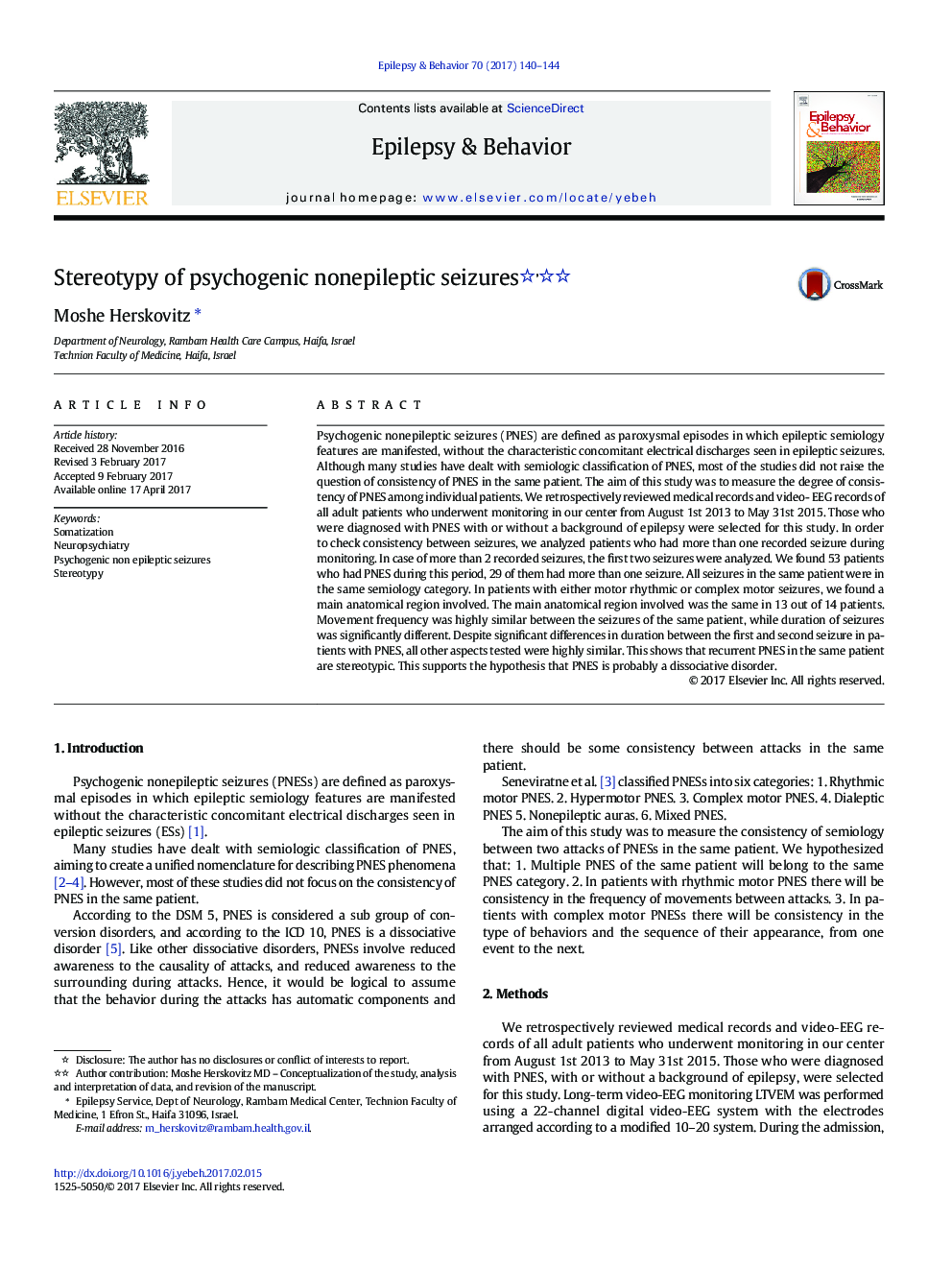| Article ID | Journal | Published Year | Pages | File Type |
|---|---|---|---|---|
| 5628296 | Epilepsy & Behavior | 2017 | 5 Pages |
â¢Many studies have dealt with semiologic classification of PNES.â¢The aim of this study was to measure the degree of consistency of PNES episodes among individual patients.â¢Consistency was tested by a 5-axes analysis.â¢Four out of 5 axes showed similarity between the 1st and 2nd PNES in the same patient.â¢Our findings are in line with PNES models supporting the hypothesis of PNES as dissociative disorder.
Psychogenic nonepileptic seizures (PNES) are defined as paroxysmal episodes in which epileptic semiology features are manifested, without the characteristic concomitant electrical discharges seen in epileptic seizures. Although many studies have dealt with semiologic classification of PNES, most of the studies did not raise the question of consistency of PNES in the same patient. The aim of this study was to measure the degree of consistency of PNES among individual patients. We retrospectively reviewed medical records and video- EEG records of all adult patients who underwent monitoring in our center from August 1st 2013 to May 31st 2015. Those who were diagnosed with PNES with or without a background of epilepsy were selected for this study. In order to check consistency between seizures, we analyzed patients who had more than one recorded seizure during monitoring. In case of more than 2 recorded seizures, the first two seizures were analyzed. We found 53 patients who had PNES during this period, 29 of them had more than one seizure. All seizures in the same patient were in the same semiology category. In patients with either motor rhythmic or complex motor seizures, we found a main anatomical region involved. The main anatomical region involved was the same in 13 out of 14 patients. Movement frequency was highly similar between the seizures of the same patient, while duration of seizures was significantly different. Despite significant differences in duration between the first and second seizure in patients with PNES, all other aspects tested were highly similar. This shows that recurrent PNES in the same patient are stereotypic. This supports the hypothesis that PNES is probably a dissociative disorder.
